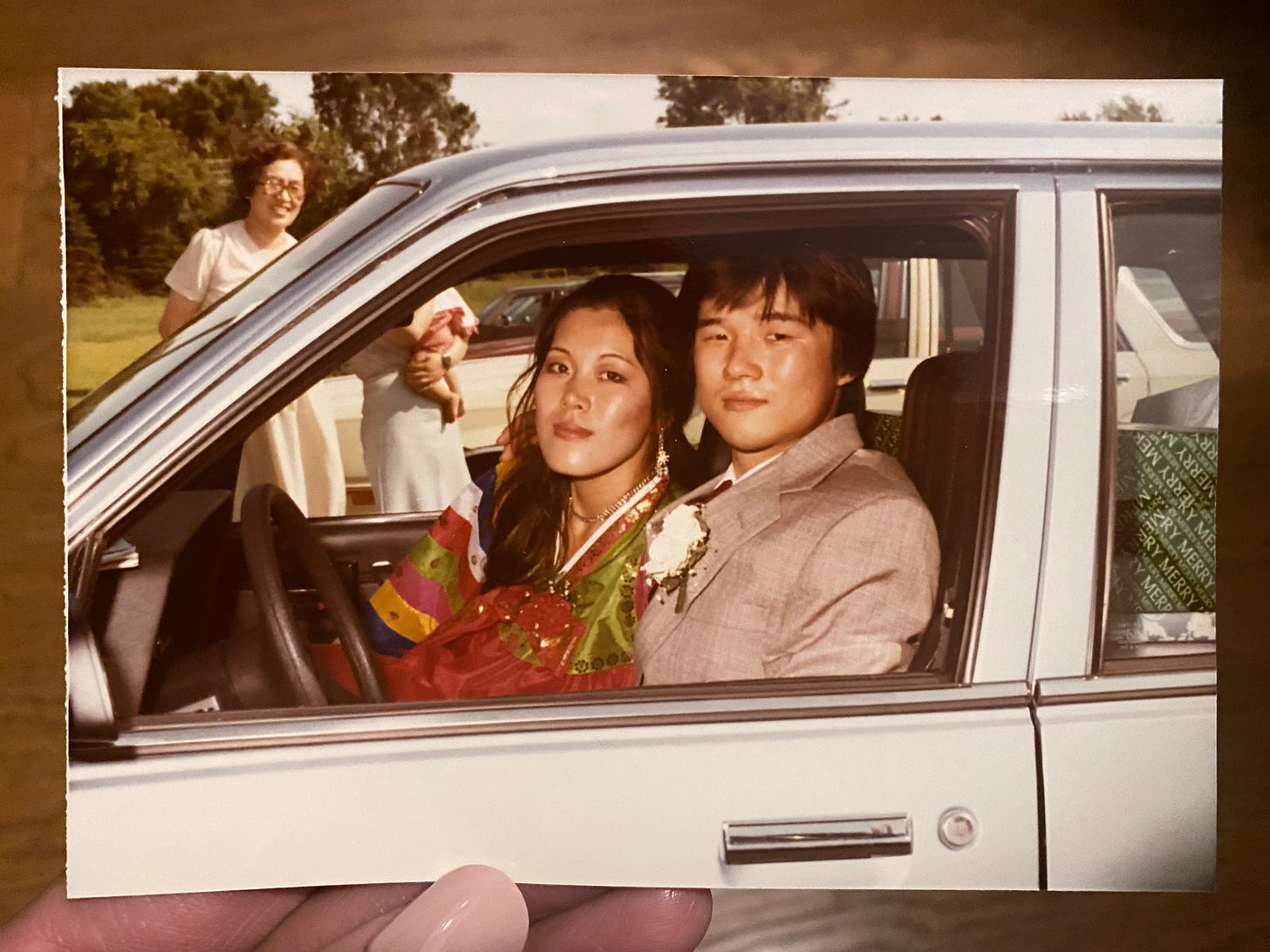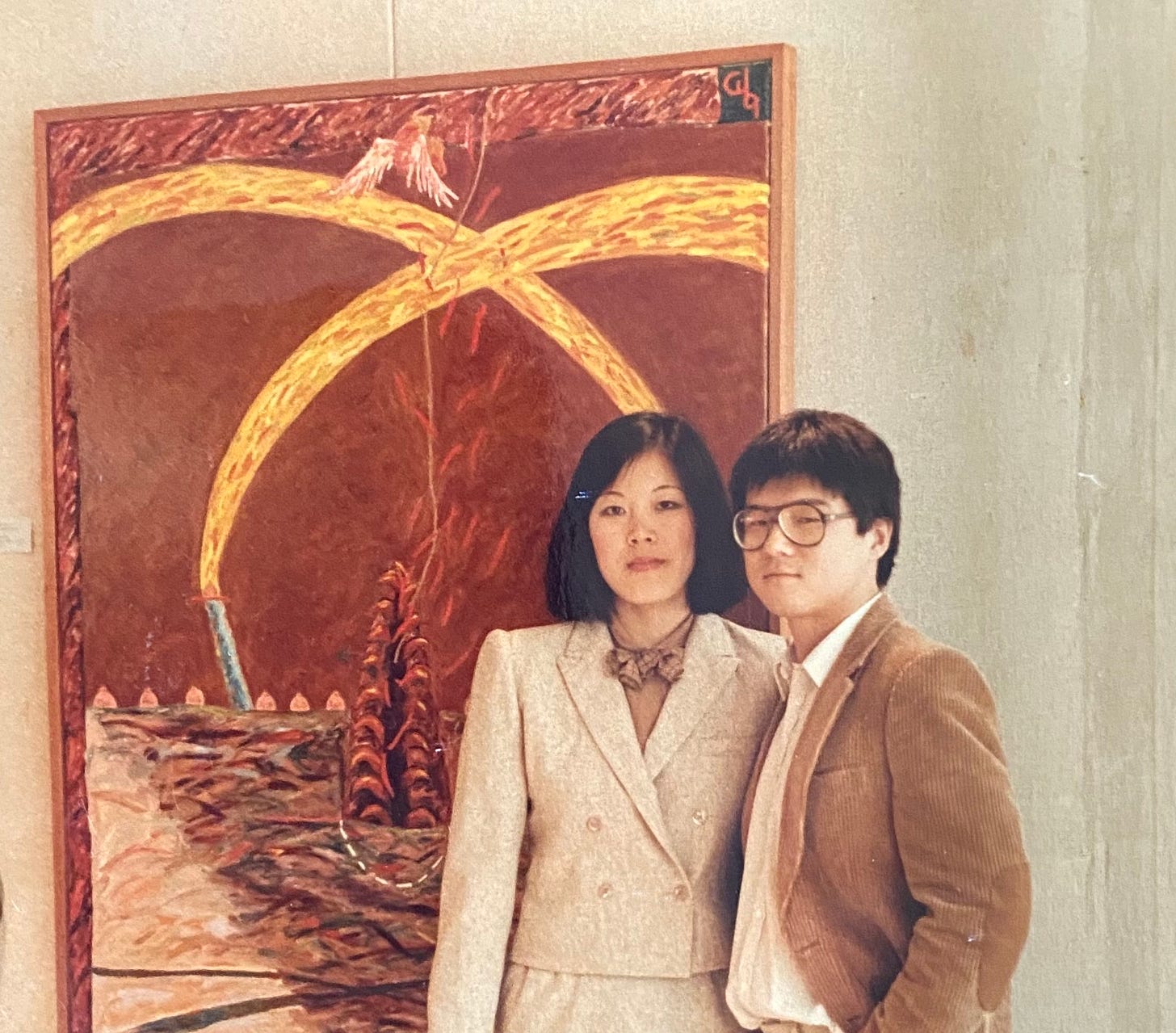My dear friend Esther Miller has graciously agreed to write a short series for our newsletter, and today’s letter is part one.
I met Esther in the summer of 2018, right before she opened Gifted, her shop in Fort Worth. I was immediately drawn to Esther—she’s just so cool and elegant, a true tastemaker. But she’s also incredibly authentic and humble, an empathetic listener, and (as you might expect) the very best gift giver.
Esther’s story begins with the generations that came before her. I love the way Esther recognizes that our dreams require sacrifices, and oftentimes those sacrifices can go unnoticed.
Esther was recently featured on our local NBC station. Watch her episode here. And check out Gifted online for your next gift—they gift wrap and ship everywhere! You can follow the shop @giftedftw on Instagram— Emily
The stories of my family’s sacrifices that echo within my core have contributed to seeing my dreams realized today. These relationships remind me that I am allowed to find dignity in myself, and when I feel down, I can remember that their resilience runs through my veins.
“Think about chin-halabuhgi (paternal grandfather).”
My grandfather abandoned his prestigious degrees as a teacher in Korea to move his family to America in hopes of giving them a life better than he could back in a divided Korea. He worked hard doing any odd job he could and saved all of his money. After he put his three children through college, he eventually opened his own iron welding business, and soon my family members joined him. My grandfather’s business and his success as a businessman outlives him today. I am so proud of him, and I remind myself I am from him.
“Think about umma (my mom).”
The once-budding artist, my mother, was a new mom to two young children, and her husband (her high school sweetheart) was in graduate school himself, studying to be a historian. Her parents were immigrants working as a school custodian and a seamstress, and her in-laws were a car salesman and a postal service worker. There was no angel investor coming to the aid of my mother. Out of the need to provide for her family, my mom started businesses with the skill she had: she painted.

My mom built a reputation as the best art teacher in Torrance, California. Korean parents from neighboring cities would send their children to my mom’s art studio because of her reputation as an artist with a skilled eye for talent and for preparing students who were serious about art to get accepted into the best art colleges across America. She didn’t achieve her dream as a fine artist, but she provided for her family using her talents in a creative way and comfortably retired in her early 50s.
“Think about samchoon, ajumma, halmuni...”
Countless other relatives and parents of friends in my Korean-American community were entrepreneurs as well.
Actually, most of them were.
When their educational credentials didn’t have standing in a new country, and they couldn’t speak the language, they worked odd jobs until they were able to save enough money to open a business in a field that doesn’t require a lot of English to operate.
Dry cleaners, liquor stores, Korean restaurants, fashion wholesalers…
I had friends whose parents did all of these and more. They worked hard at a job that was beneath their education and in most cases, still found themselves the happiest they’ve been because they were able to create comfortable lives for their children.
As a child, watching the older generations work so hard and model that discipline for us, I recognized the value of hard work. I was taught to honor our elders, as they told us that it’s better to fit in than to stand out. The elders in my community made America better. They built communities that made immigrants feel safe, they expanded people’s culinary palettes, they diversified schools, they made their mark on our country’s blueprint.
Our Korean immigrant parents and grandparents thought the best thing they could give their children was to keep their heads down and diligently work hard to save money for their families. To give their children the comforts of an abundant America and a life unburdened by language barriers, and therefore a life filled with privilege and room to dream.
They thought they were giving us unprohibited access to higher education, even if that meant working longer hours so that we had access to things they never dreamed about. Our parents gave us English as a first language, access to any extracurricular private lesson if it meant it would make our college applications more appealing, a life without the burden of household chores.
They raised us as their precious little seeds free of the world’s evils.
Yes, they gave us those things, but they gave us so much more. They modeled the value of hard work, family, and community. They planted their dreams inside ours and told us to never think we can’t reach for the stars because they’ll be our ladder. They gave us a strong footing in our ethnic culture and in honoring our elders, while simultaneously teaching us the importance of fitting in as an American. They passed on Jeong and helped us learn how to temper our Han. They paved a path to success for us with their sacrifices so that we can walk comfortably along it.

They gave us all this yet so much of my world still felt foreign and I couldn’t articulate why. When I read Cathy Park Hong’s book Minor Feelings: An Asian American Reckoning last year, I couldn’t put it down. I felt as though Hong articulated the very sentiments and feelings I couldn’t put into words.
“The indignity of being Asian in this country has been underreported. We have been cowed by the lie that we have it good. We keep our heads down and work hard, believing that our diligence will reward us with our dignity, but our diligence will only make us disappear. By not speaking up, we perpetuate the myth that our shame is caused by our repressive culture and the country we fled, whereas America has given us nothing but opportunity. The lie that Asians have it good is so insidious that even now as I write, I'm shadowed by doubt that I didn't have it bad compared to others. But racial trauma is not a competitive sport. The problem is not that my childhood was exceptionally traumatic but that it was in fact rather typical.”
Over time, I realized how I took for granted the contribution my predecessors made to our country. How dignified their methods of survival really were--work hard, study hard, fit in, be kind, obey, be pleasant, be grateful. These tactics that were meant for survival, turned into generations of Asians suppressed, silent, stereotyped. Stereotypes I felt the burden of living up to my whole life.
But I refuse to see these as bad. I’m still figuring out how I can escape these pre-existing norms while keeping the integrity of why they were created in the first place. What it means to be a Korean American deeply rooted in both cultures, yet not fully immersed in either at the same time. It’s a lot to unpack by the way. What keeps me going is thinking about how my story will impact my daughter's life and her future daughters’ lives, and I realize that I too must rise to resilience so our story can echo on.

My Favorite Things
Supergoop Glow Screen is my all-time favorite sunscreen. I have been using it for a little over two years and it has not disappointed me.* It gives your face a slight glow even if you put foundation on top of it. My mom taught me in 5th grade to never leave the house without sunscreen to protect my skin from aging prematurely. I have not left the house without sunscreen in 24 years.
*Okay, I lied. It has disappointed me once when I got the sunscreen in my eye and I thought I was going to go blind. This is not a waterproof sunscreen, so it should be worn as a daily sunscreen for going out, not going to the beach, pool, or working out. Trust.
To me, there’s nothing like starting a good Korean romcom show to get me canceling any plans that require leaving home. I recently watched Start-Up on Netflix about a woman who stumbles across a job in the tech start-up industry and finds love and herself along the way. I couldn’t get enough of it. It has all the ingredients of my definition of a perfect Korean drama: a love triangle, a really difficult challenge to overcome, light-hearted humor, family love, and resilience. I finished this show with one less tissue box and lots of inspiration to never give up on my dreams.
We just brought a brand into my shop called NLT from Los Angeles owned by two Korean-American sisters. All of their apparel is ethically made in small batches at their parents’ small garment factory in DTLA. I love all of the pieces we brought in from them, but I will be wearing the Braquelle dress as often as possible.
I recently saw an exhibit inside the Art Institute of Chicago by Bisa Butler and it blew my mind. She is a contemporary Black artist who uses fabric in a quilting manner to create large-scale portraits. If you look at the pieces from afar you may think she painted small details on them, but upon closer observation, you’ll find that each detail is quilted on. I was so inspired by her work, I hope you’ll check her out!
This is top secret, but I often get asked what laundry detergent I use because my clothes smell so good (not-so-humble mom brag). Well here’s my secret—it’s a brand called Zum Clean and the scent is called Frankincense and Myrrh. Yes, it’s expensive, but it’s super concentrated so it lasts a long time, and it’s a completely clean formula so there aren’t any nasty chemicals in it. Safe for the whole family. Mark my words: once you go Zum, you’ll never go back.




LOVED this one so much and love Gifted!